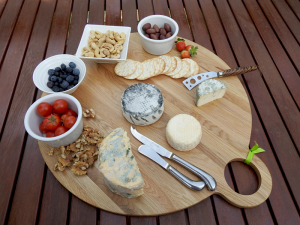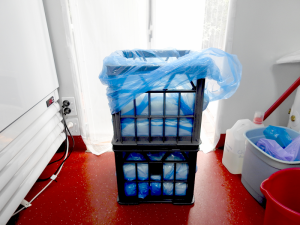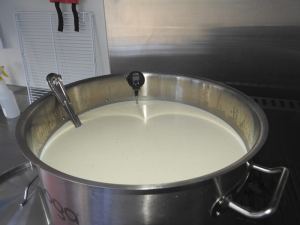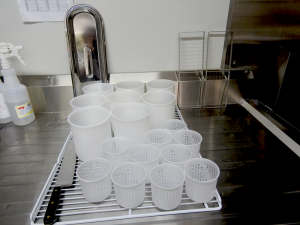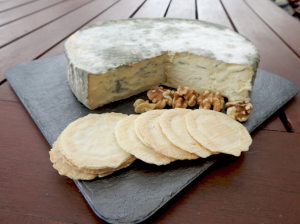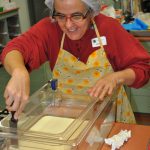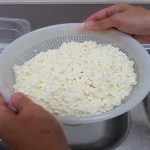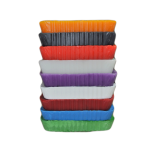When did you take up cheesemaking and why? Or what sparked your interest in making cheese?
I started about 6 years ago with a cheesemaking kit, that I was gifted from my son, to make fresh cheeses and feta cheese. I thought this looked easy to do and the cheese would be good on summer salads, and all of the family would enjoy it. I love being productive and making new things, particularly when it is so tasty.
What was the first batch of cheese you made by yourself? How did you feel about the experience and how did the cheese turn out? Can you compare your experience between then and now?
My first batch was a very lightly salted feta cheese that we ate with olives and tomatoes on a simple salad. It was fantastic, very easy to do, and my son liked it so much that I taught him how to make it, so now he makes the feta cheese. I do not make feta cheese much anymore, as I have passed that experience on. I now spend my time making more complex cheeses, with depth of flavour.
What sort of cheeses (& dairy products e.g. yoghurt) do you make, how many times have you made cheese, why do you like making cheese and how often do you make it?
I now do cheesemaking every day. I make new batches of cheese twice a week and the rest of the week involves draining, checking pH, salting, growing the moulds, cutting and packaging the cheese for market sales. We sell 4 different French style cheeses at the local markets, as a result of a trip to France on Graham’s Cheese Tour that piqued my interest even further in soft curd style cheesemaking and also the firmer blue vein style cheeses. I had thought that cheesemaking might be a good thing to do in my retirement, but now it seems to have taken over my life. We do regular product testing, and now sell 2 white mould cheeses (Whitehorse White and Ash Brie) and 2 blue mould cheeses (Blackburn Blue and Boronia Blue). We tend to sell out at local Farmers Markets. It has become a whole family experience.
What have been some interesting or rewarding cheesemaking experience(s)
I am a trained microbiologist, so I enjoy finding out how the different cultures change the flavour profile of the cheese. There are many different cultures in each cheese variety. I really like the fact that you can start with the same milk, and end up with 4 totally different flavoured cheeses. Other than the culture composition, the other main variable is how hard or soft the cheeses it, which is affected by how much you stir the curds. I just think it is so much fun.
What has been your biggest cheesemaking challenge(s)?
The hardest thing is spotting when the cultures are in sub-optimal growth conditions and having more stock ready on hand when they do. Controlling the growth of the moulds requires a lot of attention. I have to check on them every day and make adjustments as required. The cheese does not care if it is the weekend and I am trying to have the day off!
What is your favourite cheese(s) to make?
I love making my Whitehorse White, which is like a camembert with lots of flavour. It is so easy to do and the two white moulds grow quickly. I also love making my Blackburn Blue, which is a strong flavoured blue vein in a creamy cheese. It is my favourite cheese. It looks good, smells great, and gets better with age.
What cheese do you regularly have in your fridge OR What cheese can’t you do without?
My kitchen fridge has my usual 4 cheeses as well as a few more experimental cheeses, where I am trying a few other variables. The cheeses in my fridge are constantly changing. I even have an Albino Blue Cheese in there at present, which is a blue cheese without the blue, so that I can concentrate on the other flavours provided by the mesophilic and thermophilic cultures in it.
What is your advice to anyone looking to starting out on a cheesemaking journey?
Read a few cheesemaking books and try something simple, like a fresh unripened cheese. If you like it, try something more difficult, like feta. Do a cheesemaking course. I have done both of Grahams courses. The greatest key to being successful is keeping everything very clean. Try adding some ripening and flavour combinations that you have not used before. Add thermophiles to your mesophile recipe and increase the temperature to 36oC. You will be surprised at the nice flavours that can develop.
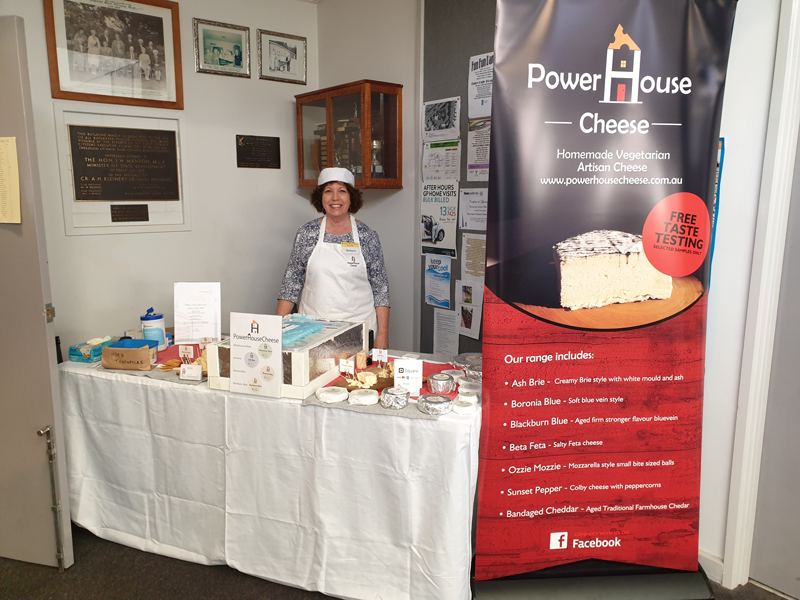
Do you have a favourite cheese(s) and cheese pairing(s)
I love using my blue vein cheese to make a bechamel cheese sauce. The cheese sauce can be used on most vegetable or meat dishes, or just on its own!
What cheese do you want to make but have not made?
One cheese I am interested in is the Munster cheese from Alsace. The first time I saw it in Germany, I could smell it through the glass front window. The shop was closed it was a Sunday, but I wanted to try it. It is a raw milk cheese. I had heard a lot about the pungency of this cheese and how it is banned in some public places. I have not made a washed rind Munster cheese yet. I have the B. Linens culture but have not found the time to do it yet. When I get a spare day I will try it.
Is there a favourite book or resource that you reference most to get technical information?
My library contains many cheesemaking books. I like in particular: Mastering Artisan Cheesemaking – by Gianaclis Caldwell. There are many online sources of information and you tube video clips, but it all comes down to personal preferences of what you like.
Read more about Barbara and Powerhouse Cheese
